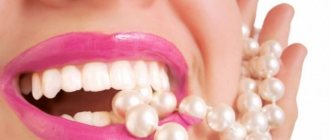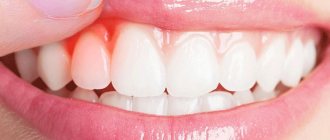First, let's figure out why this even happens? Why does a child suck his thumb? After all, in fact, this is a fairly common occurrence not only in families with children, but also where there are preschool children. At what age is thumb sucking normal?
“At the age of 2-3 months, the child finds his hands and immediately puts them in his mouth for research,” says child psychologist Ksenia Nesyutina . “This is absolutely normal and if parents, worried that the child will suck fingers in the future, do not allow sucking and put a pacifier in the mouth, then this is harmful to the child’s development. After all, in order to start using your hands, in order for motor skills to develop, you must first find and explore your hands with your mouth.
Well, if the baby has grown up, but the habit remains, you need to figure it out. The causes of thumb sucking can be different.
- At the age of about 1 year, thumb sucking may indicate an unsatisfied sucking reflex. As a rule, at this time children are actively transferred from breastfeeding or formula to regular food. Not all children easily adapt to this and sometimes begin to express their lack by sucking their fingers, explains Ksenia Nesyutina. – And over the age of 2 years, thumb sucking is usually a sign that something is bothering the child. Often these anxieties are associated with separation from the mother: the mother goes to her room at night and the child, experiencing this, begins to calm himself down by sucking his finger. But there may be other more complex anxieties. In the future, this may transform into the child biting his nails, picking at wounds on the skin, or pulling out hair.
Thus, we understand: if the baby is just beginning to get acquainted with his body and the world around him, then let him calmly suck his fingers. Nothing will happen. But if time passes, the little person grows and has been going to the garden for a long time, and his fingers are still “hiding” in his mouth, measures must be taken.
But weaning a child from thumb sucking is not an easy task.
Photo: globallookpress.com
Find the moment
It turns out that “finger in mouth” is not just a habit. According to our expert, psychologically speaking, thumb sucking may be an ingrained compensatory mechanism.
“In other words, thumb sucking gives the child (compensates) something that he cannot receive emotionally,” says Ksenia Nesyutina. - For example, we are talking about an anxious mother - it is difficult for her to calm her child down, give him support and confidence. To somehow calm himself down, the child does not use “mother’s calmness”, but sucks his finger. That is, the child is already 3-4-5 years old, and he still calms down like a 3-4 month old baby - with the help of sucking.
To wean a child, you need to find the root cause. That is, to understand why the child puts his hands in his mouth, what he is replacing in this way, and how he can provide this need on an emotional level.
— It is important to pay attention at what moments the child puts his fingers in his mouth: for example, before bed, when he plays with toys, in kindergarten. Most likely, these are stressful moments for the child. It is important to help the child adapt to this activity so that it does not cause so much anxiety in the child, the psychologist recommends.
Healthy
How to wean a child off a pacifier
Is thumb sucking a problem?
Most children suck their fingers from a very young age, some starting in the womb. Sucking is a natural reflex for babies and serves important purposes. It creates a feeling of safety and security. It can also be relaxing. This is why many children suck their fingers while falling asleep.
According to the American Dental Association, children quit thumb sucking on their own between the ages of two and four. They simply outgrow this reflex; it becomes useless.
However, some children continue to suck their fingers well into preschool age. If your child is still thumb-sucking when permanent teeth emerge, it is time to be proactive about eliminating the habit.
What to pay attention to
First of all, observe how your child sucks his fingers. If he sucks passively, that is, his finger lies freely in the mouth, then this will not cause significant problems. If, on the contrary, he presses his finger on the teeth or gums, then this can change the bite and cause uneven growth of the child’s teeth and jaws. Frequent intense pressure can even change the shape of the face. All this will require further treatment by an orthodontist.
Main changes from thumb sucking:
- the formation of a gap between the upper and lower front teeth (open bite, inability to bite off food with the front teeth);
- tilting the front teeth forward;
- narrowing of the upper jaw (crossbite).
How to help your child quit this habit
This habit is quite difficult to break once your child enjoys it! First of all, you need to wean your child from sucking his fingers during the day, and only then will he wean himself from doing it at night.
- Always be positive and supportive of your child. Instead of punishing your child for thumb sucking, reward him for not sucking.
- Put a mitten or sock on his hand not as a punishment, but as a reminder of the need to grow up. You can use bandages or apply mustard to your nails.
- Use a daily reward system: for every day without thumb sucking, the child receives a sticker; for seven days with stickers, he can choose a prize for himself: a trip to the zoo, a new set of blocks. For a month with stickers, he will receive some more significant prize. As a rule, by this time the habit has already disappeared. Making your child an active participant in your treatment will help you achieve success faster.
- If you see that the cause of thumb sucking is caused by the child’s fears, then the work should be carried out by eliminating his anxiety, and not the bad habit.
- Observe the time when thumb sucking occurs (on the road, during a long movie show) and try to create entertainment or distracting activities in such cases.
- Explain to your child in detail what will happen to his teeth if he continues to suck his fingers.
How an orthodontist can help
Orthodontists may be able to provide devices for your child to help with their thumb sucking habit. These are peculiar plates with limiters in the sky.
If a child quits his habit before the age of 6-7 years, then minor changes in the position of the teeth usually go away on their own due to jaw growth. In cases where permanent teeth have been exposed, only special orthodontic appliances can change their position. Fortunately, they successfully cope with this task.
However, bite correction in children can only begin after eliminating the habit! Otherwise, the treatment will be ineffective.
Through the game
It’s probably no secret to you that games for children are not only a way to pass time, but also a way to get to know the world around them, help them develop, and sometimes even serve as therapy.
Play can help a child cope with anxiety.
“If the child is over 3 years old, then from a psychological point of view, it is possible to wean the child if the need for thumb sucking goes away,” notes Ksenia Nesyutina. - That is, the child is anxious and compensates for anxiety by sucking his thumb. And here parents should get involved: you can help cope with anxieties and fears through games, conversations, lullabies, and reading fairy tales. It is much better for the child to play with toys or draw what he is afraid of, what he is worried about, than to simply compensate for this tension by sucking his finger.
Probably, the finger is, after all, more dangerous for children's health than the pacifier.
This is explained by the fact that the finger, larger than the tip of the pacifier, affects the territory of the oral cavity. It is also believed that it is much more difficult to wean a baby from thumb sucking - after all, it is always “at hand”, the finger cannot be taken away and hidden. The use of the pacifier can be more or less controlled - “lose”, “give to the neighbor’s puppy”.
First of all, weaning off any bad habit should under no circumstances be traumatic, either physically or psychologically. Grandmother's methods of spreading mustard or brilliant green on your finger are not recommended. Abruptly taking away the pacifier is also not justified. It is better to use unobtrusive persuasion, a game form. If necessary, consult your doctor.
Prohibit: yes or no
However, you must admit that watching a grown child slobber on his finger again is very unpleasant. The parent is an adult and understands that this is wrong, but not everyone knows how to react competently. And what begins? “Take your finger out of your mouth!”, “So I don’t see this,” “You can’t!” and stuff like that.
But, firstly, this technique does not always work. And secondly, this can be fraught with consequences.
“A direct ban on thumb sucking or other radical measures, for example, sprinkling pepper on the fingers, lead to even more negative consequences,” emphasizes psychologist Nesyutina. “If previously the child could not cope with psychological stress and compensated for it by sucking his thumb, now he cannot even do this. So what's going on? Tension goes inside, into the body, and can subsequently manifest itself in even more “strange” behavior or even illness.
Therefore, you should not solve the problem with a “whip” - it is better to re-read the previous two points again.
Adviсe
How to stop a child from sleeping with his parents
How to wean a child off a pacifier
To wean, try a simple step: cut the pacifier so that your baby can feel it in his mouth, but cannot suck on it. Psychologically, this does not traumatize the baby, and such a pacifier does not spoil the bite, and the baby will very quickly refuse the “wrong” pacifier.
If this does not help, you can try replacing the pacifier with an orthodontic device. It is similar in shape, and the baby can accept such a replacement, but when wearing such an apparatus, the dentofacial apparatus and muscles will form correctly, and in the future the baby will not have problems with bite.
If weaning does not occur before the age of 3, it is better to carry it out together with a child psychologist so as not to traumatize the child’s psyche.
The article is located in the sections: OSTEOPATHY FOR EVERYONE
No stress - no problems
And there is also this story: everything seems to be fine, the child has no bad habits, but suddenly - suddenly! – and the child begins to suck his fingers. And the baby, by the way, is already four years old!
Don't panic.
— In moments of stress, even a 3-4 year old child or even a preschooler can start sucking their fingers. You can pay attention to this, but, as a rule, as soon as the stress is compensated, the habit disappears by itself, says our expert.
But stress can be different, and if you understand the reason (let’s say the whole family moved to a new place or the child was scolded by the grandmother), then you can talk it out, console, and reassure. And if thumb sucking occurs, seemingly for no apparent reason, then it won’t hurt the parent to “prick up their ears” and try to understand, ask the child what is bothering him or who scared him.
This is what an open bite looked like in a child aged 7
Her first year was the most unstable and difficult. Since the girl did not want to get rid of the habit and the medicinal mouthguard ended up on the pillow at night in every possible way.
A year of treatment for the girl’s bite has passed, let’s see the results
But one fine day, thanks to daily work, we defeated the BIG PHALANX
The final result of open bite treatment. Photo at 11 years old
Popular questions and answers
What are the consequences of constant thumb sucking?
— If you don’t go into physiological problems that may be associated with bite and speech, then at least this is a symptom that indicates that the child has difficulties in psycho-emotional terms. These are not necessarily complex, insoluble problems, but they are worth paying attention to, and perhaps the parent should change the way they care for and communicate with the child, the psychologist recommends.
In what cases should you seek help from a specialist?
You need to go to a specialist if this issue greatly worries the parent. The fact is that thumb sucking most often indicates that the parent cannot provide the child with a feeling of stability and reliability. And if the mother herself is drowning in anxiety, then outside help, moreover, the help of a specialist, will definitely not hurt,” says Ksenia Nesyutina. – If we are talking about a child, then it is better to start with a pediatrician. He will prescribe an examination of the necessary specialists. But, as a rule, psychologists work with this problem.
Simple rules
If you decide to give your baby a pacifier, choose the optimal shape - it should be orthodontic, with a beveled edge that ensures the tongue is positioned high in the mouth.
Don't let your baby suck on a pacifier all the time. It is the duration of sucking, and not its strength, that determines the speed of formation of malocclusion: the more the baby sucks on a pacifier every day, the faster this will happen.
It is very important to take your child to the orthodontist regularly. The first visit should be scheduled no later than 1 year and the baby should be seen approximately once every six months in order to notice bite pathology in the early stages in time and not waste time.











